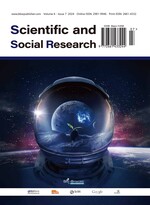Abstract
The technical iteration of generative artificial intelligence represented by ChatGPT generates strong computing power and intelligence, which brings convenience to people and improves people’s production and living standards. Due to the extreme language logic and the ability to crawl data, the technology also has other deep problems. To solve such problems, this paper believes that the development of special laws can first be promoted from the following aspects. The second is to emphasize the strategic layout of national security to prevent countries from being blocked by other countries in terms of generation-like artificial intelligence. Otherwise, the productivity level of the affected country would fall. Finally, the paper discusses the division of responsibility for generative artificial intelligence of ChatGPT.
References
Zhu P, 2023, Luo Jun from the China Computer Industry Association: The Emergence of ChatGPT has Accelerated the Realization of the Metaverse by at Least 10 Years. Daily Economic News, February 21, 2023, 5.
Liu J, 2024, Criminal Responsibility of Providers of ChatGPT-like Generative AI Products. Rule of Law Studies, 2024(02): 61–71.
Cai SL, Yang L, 2023, Research on Risks and Collaborative Governance of ChatGPT Intelligent Robot Applications. Information Theory and Practice, 2023(05):14–22.
Liu YH, 2023, Three Major Security Risks and Legal Regulations of Generative Artificial Intelligence: A Case Study of ChatGPT. Eastern Methodology, 2023(04): 29–43.
Shang J, 2023, Meta-Rules for Risk Governance of Generative Artificial Intelligence. Eastern Methodology, 2023(03): 4–17.
Jiang H, 2023, The Impact of Artificial Intelligence Chatbots on Research Output and Talent Evaluation: A Perspective Analysis Based on ChatGPT and Microsoft Bing. Journal of Chongqing University (Social Science Edition), 2023(02): 97–110.
Kong XC, 2023, Legal Responses to Generative Artificial Intelligence from the Perspective of National Security: A Case Study of ChatGPT. Rule of Law Studies, 2023(05): 61–70.
Wu Z, Xiao Y, 2024, Application, Risk and Legal Response of Generative Artificial Intelligence from the Perspective of ChatGPT. Journal of Tianjin Normal University (Social Science Edition), 2024(03): 12–20.
Bi WX, 2023, The Regulatory Dilemma and Resolution of Risks in Generative Artificial Intelligence: Regulatory Perspective on ChatGPT. Comparative Law Research, 2023(03): 155–172.
Zhang XH, 2024, The Impact of ChatGPT on Law and Its Response Strategies. Jianghan Academic Journal, 2024(03): 45–54.
Tang Y, Wang Y, Xu D, 2024, Legal Regulation of ChatGPT-like Artificial Intelligence in the Perspective of False Information Governance. Journal of Hubei Second Normal University, 2024(4): 34–39.
Ren J, 2023, Will Human-Machine Relationships Be Inverted? Reflections Triggered by ChatGPT “Escapes”. Journal of Humanities, 2023(05): 39–51.
